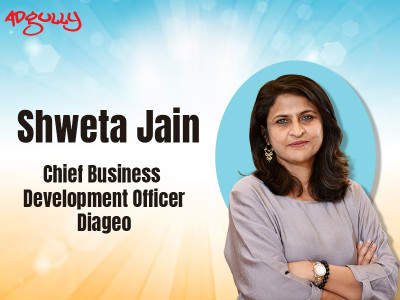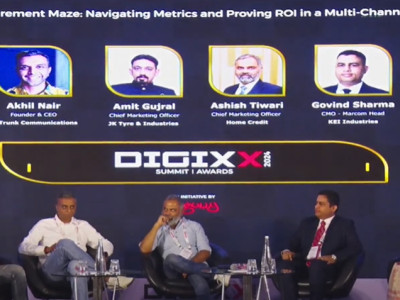Vishal Jacob on the importance of data in marketing and streamlining challenges
The digital world is rapidly evolving, and the 7th edition of DIGIXX Summit & Awards, organised by Adgully, was aimed at exploring this transformation with its theme, ‘Virtual to Real – The Great Digital Transformation.’
Vishal Jacob, Chief Digital & Transformation Officer, Wavemaker, delivered a keynote address on 'Making Marketing Agile and Adaptive through Cloud,' highlighting the challenges faced by marketers in collecting and streamlining data to draw meaningful insights. Jacob emphasized the importance of infrastructure and culture in data-driven organisations and the role of cloud technology in overcoming scalability issues.
In his insightful address at the DIGIXX, Jacob began his address by mentioning his journey in the advertising world: “I joined the advertising world two decades back. We had a lot of strategic and technical questions thrown at us: questions around market penetration or how to increase market share within a certain geography or finding what's the big idea, the value proposition that one can drive within a certain audience.”
Vishal Jacob discussed the challenges of data collection and personalization across the customer journey. In particular, he focused on questions around market penetration, increasing market share, and enhancing the path to purchase, while stressing the importance of drawing meaningful insights from analyzing data in real time.
He added: “It's all stemming from the fact that data has become an extremely critical element within organisations. There are different functions within the organisation that's trying to solve for it. You'll find people within the human resource all the way to sales and operations are looking to solve it in different lenses. When it comes to marketing specifically, I'm going to talk about the other functions, and there are a couple of key challenges.”
Jacob further explained the challenges in the market, “When you look at the data in marketing, I've obviously had a purview across industries. There are two key challenges. One challenge essentially is that there is a whole lot of data that's coming in from different sources. It could be from the campaigns that you do; it could be the call center data that you get or the chat box that you use to engage with your audiences when you get it, it could be the active data that you set on and so on and so forth. Each of these data points try to solve a certain kind of marketing problem," he explained.
According to him, the challenge obviously over here is how you streamline all this data and draw meaningful insights out of it on a real-time basis.
“That becomes a bit of a problem for a lot of people. So in theory as it looks, there's multiple data schemes coming in. Let's all put it together and draw insights out of it. But in reality, it's an extremely difficult and challenging problem for a lot of organisations to solve,” he said.
Jacob emphasized that having the right infrastructure is crucial for scalability in marketing initiatives. He also pointed out that building a culture of data within an organization is equally important.
“When you look at drawing meaningful insights from analyzing this data, it is very critical for everyone to understand that there are multiple aspects that one needs to talk about, multiple tools that need to talk together to kind of come up with insights. So we have a client, for instance, that uses four or five different types of antic tools for different types of problems. So a certain kind of tool for analyzing data, a certain kind of tool for looking at your mouse and doves, a certain kind of tool for looking at attribution and stuff. And all of them essentially are three different types of tools for the same organisation. If these data points don't necessarily talk to each other essentially, then it becomes a huge challenge to take any meaningful decision,” he explained.
According to him, the right kind of infrastructure is essential if you want to analyze data.
He observed that what's changed essentially is the cloud. "So the data that actually rests in the local server now being on cloud helps to scale data more effectively, the access of data and even multiple APIs becomes a lot easier and therefore you're able to analyze without having any complex systems in place," he adds.


















Share
Facebook
YouTube
Tweet
Twitter
LinkedIn